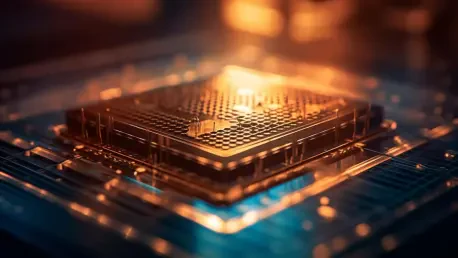I’m thrilled to sit down with Kwame Zaire, a renowned manufacturing expert with deep insights into electronics, equipment, and production management. With his thought leadership in predictive maintenance, quality, and safety, Kwame brings a unique perspective to the complex world of U.S.-China tech rivalry, particularly as it pertains to cybersecurity and semiconductor innovations like Nvidia’s H20 chips. In this interview, we’ll explore the recent tensions surrounding China’s concerns over alleged security risks in these chips, Nvidia’s response to the accusations, the broader implications for tech competition between the two global powers, and the potential impact on the industry.
Can you shed light on why China’s cyberspace regulators recently summoned Nvidia, and what specific issues they raised about the H20 chips?
Certainly, Joshua. China’s Cyberspace Administration called Nvidia in over fears that the H20 chips, designed for the Chinese market, might contain what they described as “backdoor safety risks.” Essentially, they’re worried these chips could be tracked or remotely disabled, posing a threat to cybersecurity and data privacy for Chinese users. It’s a serious accusation, reflecting broader concerns about foreign technology in critical infrastructure.
How did Nvidia address these allegations of backdoors in their H20 chips?
Nvidia was quick to push back, firmly stating that there are no backdoors in their chips that would allow remote access or control. They emphasized their commitment to cybersecurity and seemed confident in their position, though they didn’t dive into granular technical details publicly. It’s clear they’re trying to reassure both regulators and customers that their products are secure.
Can you walk us through the recent shifts in U.S. policy regarding the sale of H20 chips to China?
Absolutely. Initially, the Trump administration blocked the sale of H20 chips to China as part of broader restrictions on AI technology exports, citing national security risks. These chips were specifically engineered to comply with export rules, but the ban still stood until recently. Just a couple of weeks before this latest controversy, the administration lifted the block, allowing Nvidia to resume sales. During a visit to Beijing, Nvidia’s CEO celebrated this decision with a lot of optimism, signaling how crucial the Chinese market is for their business.
What could China’s security concerns mean for Nvidia’s ability to sell H20 chips in that market?
The Chinese market is a massive opportunity for Nvidia, with potential sales of hundreds of thousands of H20 chips. If Beijing’s concerns lead to restrictions or an outright ban, it could deal a significant blow to Nvidia’s revenue and growth plans in the region. It’s not just about immediate sales—it’s about long-term access to one of the world’s largest tech markets, which could reshape their global strategy.
How does this situation with Nvidia fit into the larger tech rivalry between the U.S. and China?
This is a textbook example of the ongoing tech tug-of-war between the two nations, especially in the race for AI dominance. Both countries see artificial intelligence as a cornerstone of future economic and military power, so control over advanced chips like the H20 is a flashpoint. For the U.S., it’s about preventing China from accessing cutting-edge tech that could be militarized; for China, it’s about reducing reliance on foreign systems and protecting against potential espionage. It’s a high-stakes game with national security on both sides.
What’s behind the claims that Nvidia’s chips could be tracked or remotely disabled, and is there any evidence to support this?
According to Chinese regulators, these claims stem from insights by unnamed U.S. AI experts who suggested Nvidia has the tech to track, locate, and disable chips remotely. There’s also a reference to U.S. legislative proposals that would mandate such capabilities in high-end chips sold abroad. However, no concrete public evidence has been presented to back up these specific accusations against Nvidia. It’s a murky area where speculation and geopolitical posturing often blur the lines.
How have U.S. lawmakers reacted to the decision to lift the ban on H20 chip sales to China?
There’s been significant pushback from Capitol Hill. Democratic senators, including prominent figures, have voiced serious concerns, arguing that even less advanced chips like the H20 give China capabilities their domestic tech can’t match. On the Republican side, key lawmakers have warned against allowing American chips to be used in ways that could bolster China’s military or suppress its own people. There’s a clear bipartisan unease about the potential misuse of U.S. technology.
Looking ahead, what is your forecast for the U.S.-China tech rivalry in the context of semiconductors and AI?
I think we’re in for a prolonged period of tension and fragmentation in the tech landscape. Both nations are doubling down on self-reliance—China with its push for domestic chip production, and the U.S. with tighter export controls and incentives for onshore manufacturing. For semiconductors and AI, the battle will likely intensify, with more disputes over security, access, and innovation. Companies like Nvidia will keep getting caught in the crossfire, navigating a minefield of regulations and geopolitical pressures. We might see a bifurcated tech world emerge, where systems and standards diverge along national lines, which could stifle global collaboration but also spur intense competition.









